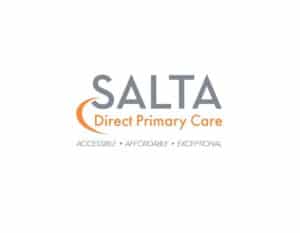Introduction
SALTA was formed in 2001 after recognizing the broken US healthcare system. They realized that most patients couldn’t access care in a timely manner . SALTA decided to rebuild the primary care model from the ground up completely. Headquartered in Troy, Michigan, they have fostered deep and meaningful relationships with their members by choosing to work directly for their patients, instead of seeking reimbursement from insurance companies. All SALTA facilities offer 24-hour direct access to doctors, one low monthly fee with no surprise billing, and even the option of virtual appointments.
With Accresa, SALTA has bolstered their DPC model, by continuously providing support and lowering overall costs for patients by 20% on average. They have been able to not only serve individuals and families in their community but also have extended access of Direct Primary Care (DPC) to corporate clients.
Continuously working to mend the relationship between practitioners and patients is a long journey but having a platform like Accresa where staff can access all patient info and manage care plans easily offsets much of the manual labor.
Challenge
SALTA was first conceptualized in the early 2001s; the practice of technology-based record keeping had not been entirely fleshed out and was not readily available. Over the years, as SALTA began to grow, they realized that switching to technology would be the best option. Quickly realizing that no program could meet all their needs, instead, they were forced to use several programs across the organization with no fundamental record-keeping metric.
Paper Record Keeping
With the past technological limit, SALTA was burdened with a mostly manual paper record-keeping process that was time-consuming and exhaustive. Paper record keeping is notoriously difficult to organize, and monitoring the quality of patient record keeping was becoming a hassle as they expanded their network and organization.
Outdated Billing Process
The manual billing process left the staff to pick up the pieces. With most payment information kept in paper records, managing and updating individual and employer accounts were quite cumbersome.
Inefficient Enrollment Process
Due to a paper enrollment system, it was hard to manage and update patient information. Due to its nature, this stunted growth efforts for SALTA.
Why Accresa?
While searching for viable solutions, SALTA CEO Dr. John Blanchard was presented with Accresa at a DPC conference and immediately bought into the idea. “We were presented the Accresa solution by the team and were sold on the vision and importance of this tool for our poised growth.” SALTA was wooed by the proposition of an all-in-one interface that could bring all their record-keeping and payment management into one easily accessible platform primed for scalability. Kyle Bingham, the Director of Business Development, said, “The Accresa platform certainly has helped our company scale and tackle complex roadblocks brought on by employers and the individual market.”
Results
Since transitioning to Accresa, SALTA now uses the platform as their sole individual and employer enrollment solution. With Accresa, SALTA now has one ‘Source of Truth’ for their patient panel data, reporting, and network affiliations all within a single platform. Moreover, SALTA can rely on Accresa to manage individuals’ and employers’ billing processes while reconciling payments back to SALTA and/or other SALTA Affiliate Providers.
- Ability to expand the SALTA Network and compensate their SALTA Affiliate Providers available for employees/dependents through employer contracting.
- Can enroll large employer groups.
- Employers can set their own contribution amount, and SALTA can still offer their standard DPC and premium DPC offerings, giving the consumer a choice of provider/location/price, etc.
- Accresa’s national DPC provider community
- SALTA has been able to focus on patient care and reestablish the direct relationship between patient and provider. The results, as seen below, are exceptional healthcare outcomes with lower costs, an enhanced patient experience, 24/7 provider access, convenient care coordination, and continuity of care.




